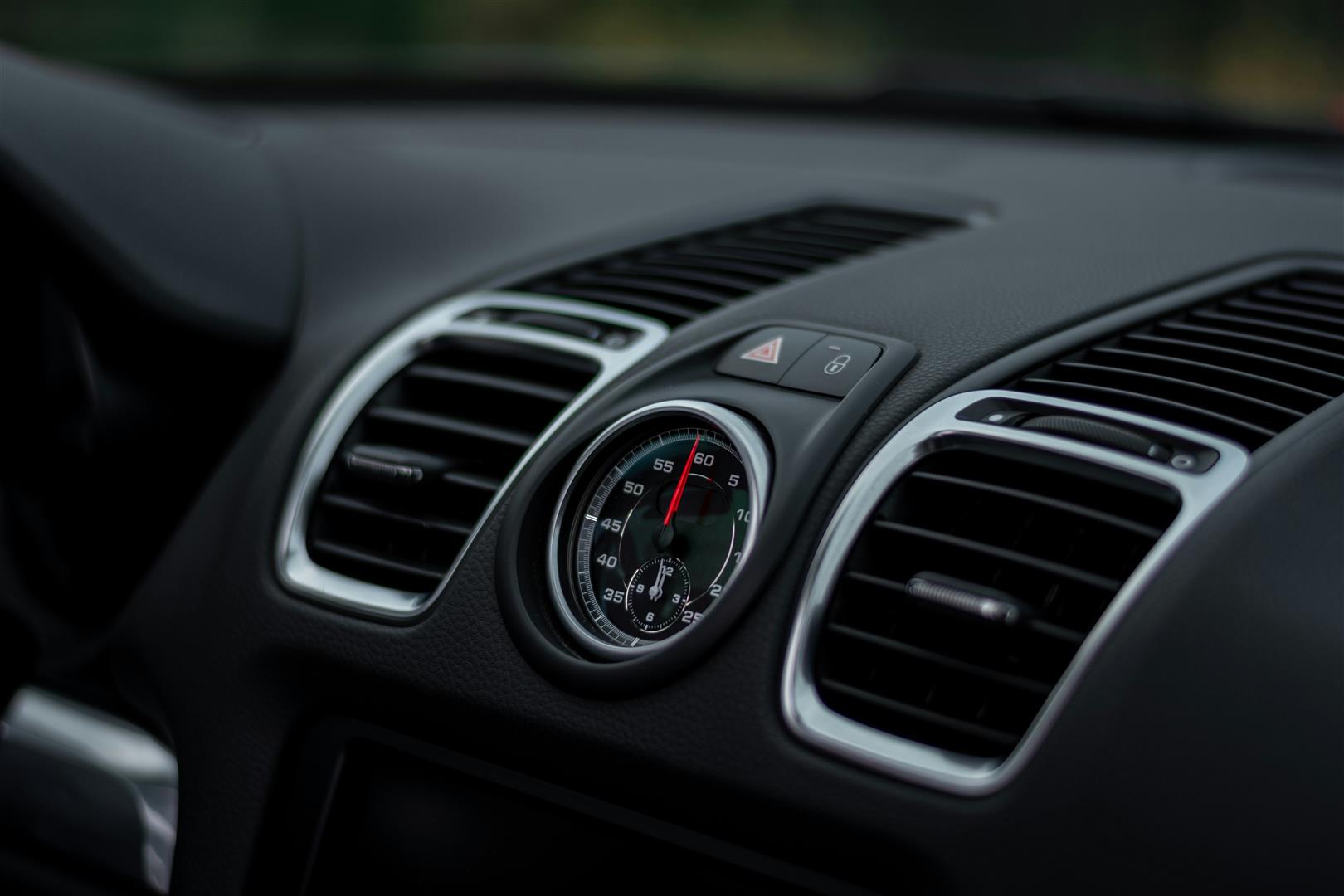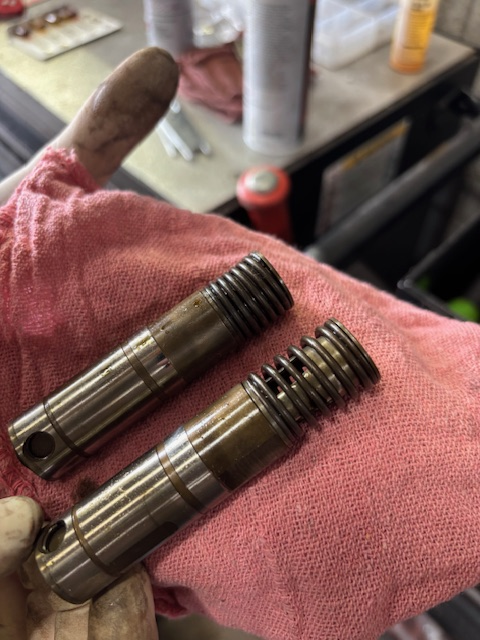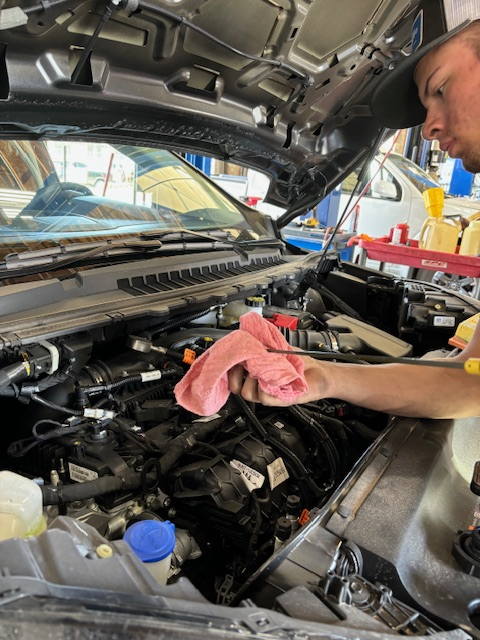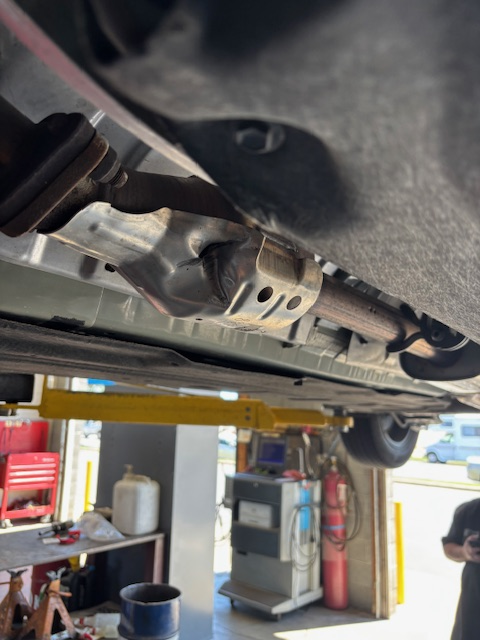Posted on 7/2/2025
.jpeg)
🔥 How Summer Heat Affects Your Vehicle (and Signs You Shouldn't Ignore) Summertime means road trips, sun-soaked days, and unfortunately… stress on your vehicle. While you may be enjoying the warmer weather, your car is working overtime to keep cool and stay running. High temperatures can impact everything from your battery to your tires—and if you're not careful, that summer fun can turn into a breakdown on the side of the road. Here’s how extreme heat affects your vehicle—and the signs you should watch for. ☀️ 1. Battery Strain The heat is harder on your battery than winter. High temperatures can cause battery fluid to evaporate, leading to internal damage and a shortened lifespan. Signs to watch for: Slow engine crank Dim headlights Battery warning light A rotten egg smell (which can indicate a leaking battery) ... read more
Posted on 6/25/2025

Understanding the New A/C Refrigerant 1234yf: What You Need to Know If you've had your vehicle's air conditioning serviced recently or drive a newer model, you may have heard about 1234yf refrigerant. This newer A/C refrigerant is quickly replacing the older R-134a in many vehicles — and for good reason. So what is 1234yf, why are manufacturers switching to it, and how does it affect you as a vehicle owner? Let’s break it down. 🔧 What Is 1234yf Refrigerant? 1234yf (short for HFO-1234yf) is the next-generation refrigerant used in vehicle air conditioning systems. It's designed to have a much lower impact on the environment compared to older refrigerants — especially R-134a, which has been the standard for decades. 1234yf is a type of hydrofluoroolefin (HFO) refrigerant. It cools just as effective ... read more
Posted on 6/11/2025

Active Fuel Management (AFM)—also known as Cylinder Deactivation—is GM’s variable-displacement engine technology. It's designed to improve fuel economy by allowing V6 and V8 engines to deactivate cylinders under light-load conditions, such as steady highway driving. When deactivated, these cylinders are closed off and filled with trapped air, effectively turning them into air springs. This reduces energy loss through pumping, helping the engine run more efficiently while maintaining a smooth driving experience. 👨🔧 How AFM Works 🔧 Hydraulic Lifter Control AFM uses a combination of solenoids and hydraulically-actuated lifters, located in the engine valley, to disable specific intake and exhaust valves. These lifters, supplied by Eaton and Delphi, temporarily prevent certain cylinders from firing, allowing the engine to operate in a leaner mode when full power isn't ... read more
Posted on 6/5/2025

The Importance of Regular Oil Changes: Insights from Dickerson Automotive in Spanish Fork, UT Regular oil changes are a fundamental aspect of vehicle maintenance, crucial for ensuring the longevity and performance of your engine. At Dickerson Automotive in Spanish Fork, UT, we emphasize the significance of timely oil changes and offer comprehensive services to keep your vehicle running smoothly. Why Are Oil Changes Essential? Engine oil serves multiple vital functions: Lubrication: It reduces friction between moving parts, preventing wear and tear. Cooling: Oil helps dissipate heat, maintaining optimal engine temperature. Cleaning: It carries away dirt and debris, keeping the en ... read more
Posted on 5/28/2025

When you're cruising down the freeway, you expect the road to be clear—free of hazards and distractions. But one of the most common yet often overlooked threats to your safety is loose debris that may suddenly appear in your lane. Loose items or parts falling from other vehicles can lead to serious accidents, vehicle damage, and even fatalities. While debris might seem like a minor inconvenience, it can cause life-altering consequences if not properly managed. Whether it’s a piece of machinery, a broken car part, or even construction materials, loose debris on the freeway can lead to catastrophic outcomes. In this blog post, we’ll explore why securing your load, checking for loose parts, and maintaining your vehicle are critical—not just for your safety, but for the safety of everyone on the road. What Is Loose Debris ... read more